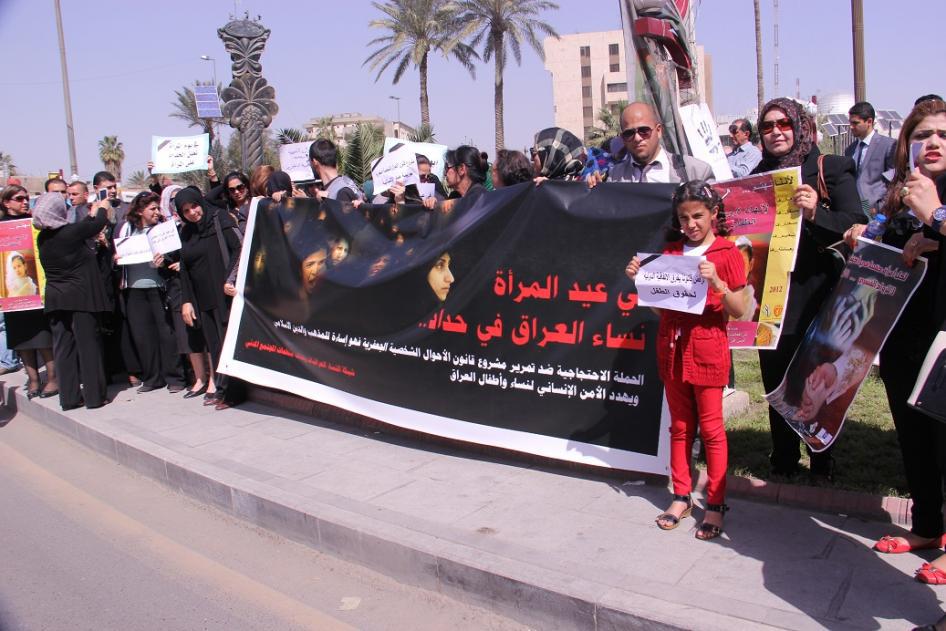There had always been problems with violence in Nour’s marriage. She used to hide her bruises from her family after her husband beat her. But during the pandemic things got even worse.
By Ghufran al-Khazraji, in Baghdad
“It started just three days after our wedding, two years ago, but during the pandemic it doubled,” the Baghdad-based woman says. “I wish I had stayed single. I would never have married if I had known what would happen.”
Nour says that during the pandemic she tried to return home – she is there now, with her child, and hopes to stay. Unfortunately, her own father has told her that divorce would bring shame on their family, so for the time being, her future is uncertain.
The impact of the lockdown – where potentially violent partners are forced to stay at home with their families for weeks on end – has been well documented in Iraq and elsewhere. Domestic violence has increased for those already in danger, as well as for some family members who may previously have had calmer lives.
It’s hard to get figures on domestic violence in Iraq. It remains a hidden crime in that, for most families, violence against females, arranged marriages, difficulties in divorcing and patriarchal leadership is a given. Nonetheless a network of women’s right organisations in Iraq estimates that violence against women has risen 63 percent during the lockdown.
The network has launched a campaign to try and educate locals about domestic violence and is lobbying for the passage of a domestic violence law in Iraq. Iraqi Kurdistan already has such a law, although it is hard to know how efficacious it actually is.
In some cases, the pandemic has also driven victims of this abuse to divorce and desperation.
Sara Mohammed, another resident of Baghdad, had experienced violence from her husband previously. He had agreed with his new wife’s family that she be allowed to complete her science studies but then prevented her from taking the final exams, so that she failed her degree. During the lockdown, things got so bad she finally arranged to divorce him. The 22-year-old doesn’t want to raise her child without a father but the pandemic simply exhausted Mohammed’s energy and ability to bear the situation. Finally, she left, giving up any financial rights in favour of her husband.
Samar Jassem Hussein is in a similar position. Her main problem right now is the lifting of travel restrictions into Iraq. Her parents are flying into Baghdad from the US to witness her divorce from the man who has beaten and abused her for eight years.
“When this lockdown ends I will be free of this chain of violence that has destroyed my life,” she says. “My husband would often beat me in front of our children, who would usually cry and scream as he did so. No matter the cost, I don’t want them raised in this atmosphere because I believe that if somebody watches his father beat his mother in front of him, then he will beat his wife tomorrow.”

